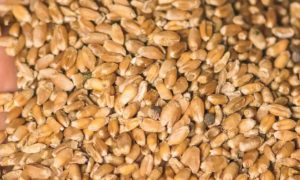India Rejects US GM Maize Imports, Bets Big on Non-GM Self-Reliance

India has resisted U.S. pressure to import GM maize, prioritising smallholder livelihoods, self-sufficiency and non-GM market integrity. Officials argue cheap GM imports could depress domestic prices and undermine premium export access. Instead, India aims to raise yields through non-GM hybrids, irrigation and mechanisation, strengthening farmer incomes and food security over trade concessions.
India has firmly pushed back against US pressure to import genetically modified (GM) maize, prioritizing smallholder farmers, non-GM integrity, and domestic productivity over cheap foreign corn. The stance comes amid comments from US Commerce Secretary Howard Lutnick, who noted India buys “not even a bushel” of American corn, sparking debate on trade versus self-sufficiency.
U.S. Commerce Secretary Howard Lutnick recently noted that India, with 1.4 billion people, imports “not even a bushel” of U.S. corn.
This observation, cited by Ram Kaundinya in The Pioneer (22 October 2025), overlooks India’s core agricultural ethos: self-reliance, smallholder welfare, and non-GM integrity.
India’s maize sector exemplifies this. Over 40 million tonnes are produced annually across 10 million hectares, with yields at 3.5 tonnes/ha, targeting 6 tonnes/ha through non-GM single-cross hybrids, improved irrigation, soil health, and mechanisation.
More than 45% of Indians depend on agriculture, mostly small farmers who have shifted to maize for better returns in states like Maharashtra, Madhya Pradesh, and Bihar. India is self-sufficient; imports are discretionary, driven by industrial needs, not shortages.
Global dynamics fuel import pressure. China’s reduced U.S. corn purchases have left exporters seeking new markets, with India as a prime target. Yet, India resists GM maize imports, maintaining high tariffs (15% up to thresholds), prohibiting large-scale GM entries, and allowing only one GM food crop domestically.
According to sources, India is unlikely to accept U.S. GM corn demands, prioritising farmer incomes, food security, and biosafety.
Cheap GM imports pose risks. They could crash local prices, disincentivise productivity investments, and erode India’s non-GM premium in Europe and the Middle East.
A Down To Earth study found over 15% of tested maize products contained unapproved GM traces, highlighting traceability challenges. Flooding markets with GM maize would undermine value-chain segmentation, export competitiveness, and consumer trust.
India’s strength lies in non-GM pathways. Robust hybrids, agronomic improvements, and mechanisation can achieve yield targets without genetic modification.
Non-GM maize offers resilience against global supply shocks and premium market access where GM aversion is strong. Protecting this identity preserves farmer agency, domestic value chains, and national food sovereignty.
Policy must reinforce this vision. Invest in locally adapted non-GM hybrids, scale mechanisation, irrigation, and extension services for smallholders.
Use tariffs, quotas, and GM-status certifications to shield domestic producers. Develop identity-preserved non-GM supply chains for premium branding and exports. Communicate non-GM maize as aligned with farmer welfare, sustainability, and resilience.
India’s maize economy stands at a crossroads. External trade pressures are real, but national priorities smallholder livelihoods, self-sufficiency, non-GM integrity must prevail.
Rather than importing bulk GM corn, India should deepen domestic production, empower farmers, and lead globally in high-productivity, non-GM maize systems.
This is not trade defiance; it is strategic nation-building. A resilient maize economy will sustain millions of farmers, strengthen food systems, and position India as a model of agrarian progress with sovereignty intact.
To Read more about Maize News continue reading Agriinsite.com
Source : Dainik Jagran















